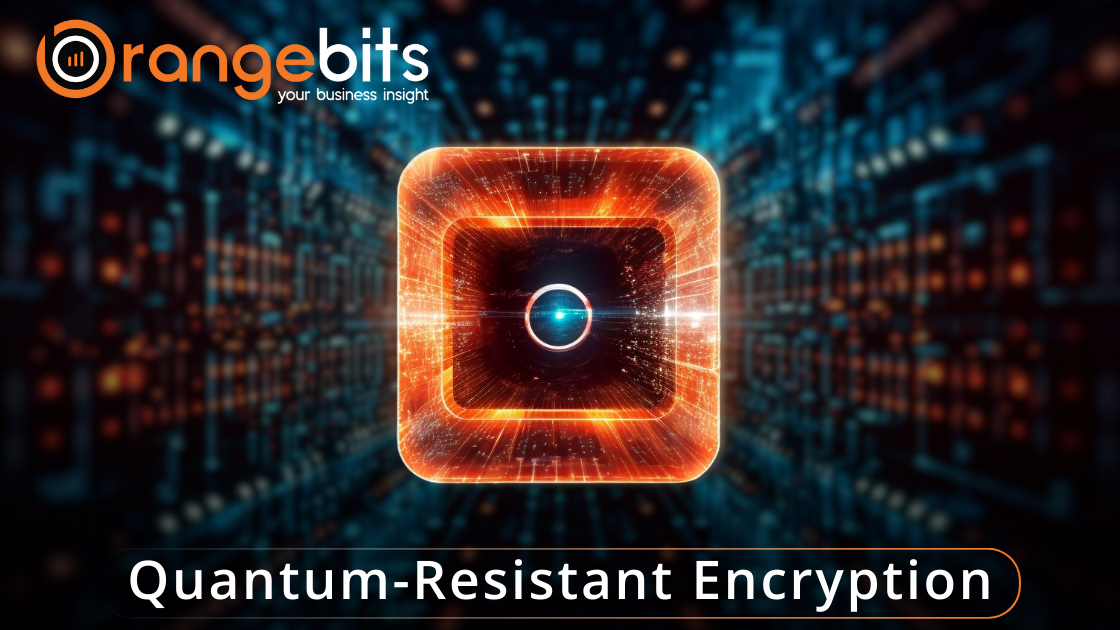
Quantum-Resistant Encryption: Securing the Future of Data
Orangebits Software Technologies (India) Pvt Ltd
Empowering Industries through Innovative Solutions!
With quantum computing on the horizon, traditional cryptographic systems are at risk of becoming obsolete. While current encryption methods protect our digital world, quantum computers could break them within seconds. This is where quantum-resistant encryption, also known as post-quantum cryptography (PQC), comes into play. Let’s dive into what quantum resistance means, why it’s important, and how it's shaping the future of cybersecurity.
What Is Quantum-Resistant Encryption?
Quantum-resistant encryption refers to cryptographic algorithms that are designed to be secure against the capabilities of quantum computers. These computers leverage the principles of quantum mechanics to perform calculations at speeds unimaginable to even the most advanced classical supercomputers. While this holds promise for breakthroughs in various fields, it poses a serious threat to the cryptographic techniques that safeguard our sensitive information.
Classical encryption methods like RSA and ECC (Elliptic Curve Cryptography) rely on the difficulty of factoring large numbers or solving discrete logarithms, problems that quantum computers can solve efficiently using Shor’s algorithm. Quantum-resistant encryption algorithms are designed to be immune to such attacks, ensuring long-term security in a post-quantum world.
Why Do We Need Quantum-Resistant Encryption?
While quantum computing is still in its early stages, it’s advancing rapidly. Major companies and governments are investing heavily in quantum research, and experts predict that within the next 10-20 years, fully functional quantum computers will become a reality. If current cryptographic systems remain unchanged, they could be rendered useless, allowing cybercriminals or malicious entities to decrypt sensitive data in a matter of seconds.
For organizations handling sensitive information—such as financial institutions, governments, and healthcare providers—the transition to quantum-resistant encryption is crucial to maintaining confidentiality, integrity, and availability of data. Furthermore, data harvested today could be decrypted in the future when quantum computers become more powerful, making it important to start implementing quantum-safe encryption now.
How Does Quantum-Resistant Encryption Work?
Quantum-resistant encryption algorithms are based on mathematical problems that even quantum computers cannot easily solve. Some of the most promising post-quantum cryptographic techniques include:
领英推荐
The Road to Standardization
As quantum computing grows, the need for standardized quantum-resistant encryption is more urgent than ever. The National Institute of Standards and Technology (NIST) has been leading the effort to standardize post-quantum cryptographic algorithms. In 2016, NIST initiated a process to evaluate and select the most secure and efficient quantum-resistant algorithms. As of 2024, several candidates are being considered for standardization, including lattice-based and code-based cryptosystems.
The ultimate goal is to ensure that these new algorithms can be seamlessly integrated into existing systems, allowing a smooth transition to quantum-resistant security.
Challenges and Adoption
While quantum-resistant encryption is promising, its adoption presents challenges. These new algorithms often require more computational resources, such as increased processing power and memory, compared to traditional encryption methods. This could impact performance, particularly in resource-constrained devices like IoT sensors.
Moreover, organizations need to consider how to implement quantum-safe encryption without disrupting their existing systems. The transition requires careful planning, including updating cryptographic protocols, re-encrypting stored data, and ensuring backward compatibility with legacy systems.
Looking Ahead
As quantum computing continues to evolve, so must our approach to cybersecurity. Quantum-resistant encryption represents the next frontier in protecting data from future threats. By proactively adopting post-quantum cryptographic solutions, organizations can safeguard their digital assets and ensure their security in a post-quantum world.
The future may be uncertain, but with the right cryptographic tools, we can ensure that it remains secure. Quantum resistance is not just a trend—it’s a necessary evolution in encryption that will define the next era of cybersecurity.
In summary, quantum-resistant encryption is a forward-looking approach to securing data against the immense computational power of future quantum computers. Organizations that prepare for this shift now will be better equipped to protect their sensitive information in the quantum age.